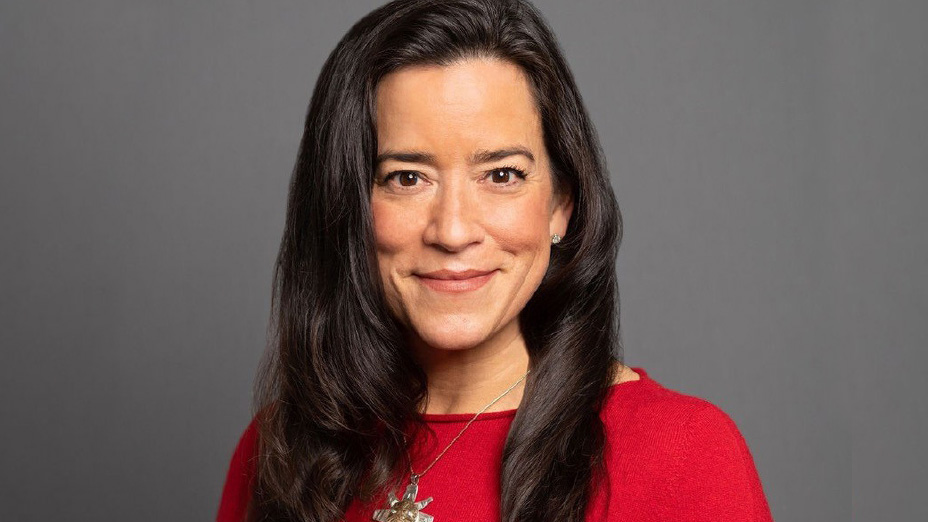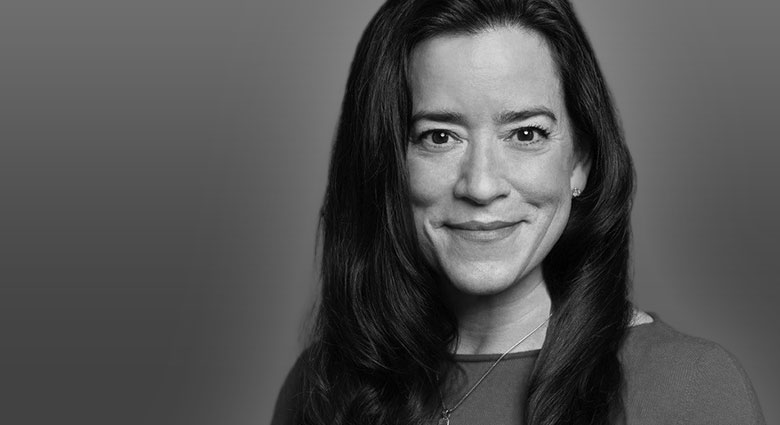Jody Wilson-Raybould most recently served as the independent Member of Parliament for Vancouver Granville. The following is excerpted from her latest book, “Indian” in the Cabinet: Speaking Truth to Power.
Soon after the swearing-in on Nov. 4, 2015, government continued to reinforce how positive this moment could be. The mandate letters were being finalized, and that was exciting. It was the first time that such letters – which detail what the Prime Minister is expecting of his ministers – would be made public. Much of the talk around the letters was great, and many of the orientation messages were music to my ears: “Politics is a secondary role we play”; “Science and the rule of law and the Constitution must be woven through everything we do”; “We must demonstrate the impact of how we spend taxpayer money”; “We must be open-minded about all different perspectives”; “Restoring Cabinet government, making decisions that reflect a team effort, will lead to better decisions”; “With politics we need to learn humility.” This was great stuff. I remember one day when we left a meeting, public servants were lined up clapping and cheering. They seemed so excited and relieved.
I was energized by doing this work. As hard and as much as the work could be,
I felt we were changing things for the better.
In these early days, a senior PMO official made a statement in front of the Prime Minister, members of the government, and public servants that has always stuck with me. It would come to mind many times during my years as minister. “The Prime Minister is your brand. You each serve at his pleasure. You each have a duty to country – and will need to at some point speak truth to power.”
I took this to heart. I wrote it in my notebook with quotation marks around it. What I did not realize at the time is that I was not expected to take the last sentence seriously.
From the perspective of getting to outcomes on big issues and making decisions, medical assistance in dying (MAID) and the legalization and regulation of cannabis were a success. Of course, people will have differing views about the policy decisions we made and what we did. That is always the case. But in terms of government functioning and process, of getting to results, it was pretty effective and one of the reasons I was proud of the government then.
As for the internal dynamics, there were problems. But in this first year or so, when the hard work was done on MAID and cannabis, I thought that if this was as bad as it got we could find our way through anything.
I was even willing to put up with the casual racism and misogyny that I’d known would be present in government, and indeed was present. I’d so hoped this would not be the case. All too typically, it would often take a white male minister to repeat or vouch for what I had just said, particularly on Indigenous rights and social justice issues, before I felt folks would listen. Of course, there were also the expressions of surprise at how I was not what certain people imagined an Indigenous person would be like. I remember vividly the first conversation I had with one of my cabinet colleagues, who exclaimed to me that I was the first Indigenous person she had ever met. It remains a reality that I, like so many women, had to tolerate a certain level of ignorance in order to get to the outcomes I wanted to achieve. But, of course, in life the real lessons come from unexpected places.
While I certainly had some successes, there were an increasing number of red flags around what was not happening. Vitally important issues – my priorities
– would be interfered with and delayed more and more. On issues in which I had first-hand and lifelong experience, the PMO seemed to insist they knew better. In addressing racism and the legacy of colonization, and in tackling over representation of Black, Indigenous and other marginalized people in the justice system, I was told time and again to slow down. The PMO knew what was right. From my perspective, the message I was getting was: Approve a pipeline first.
Undoubtedly these delays and lack of will, on the part of the PMO, to take action on these critical issues was the root of some real tensions that were building. I frustrated them and they frustrated me. I do think these tensions could have been managed and good results still been reached. But that can only happen when everyone is pursuing a shared goal of advancing decisions. It took me some time to realize this was not really the case. While I have no doubt that cabinet understood that Indigenous reconciliation and criminal justice reform are serious and challenging issues, over time I learned that they were not taken seriously from a political perspective. They do not drive people to the polls, are not often sources of partisan advantage, and frankly are rarely politically expedient. They are also hard to sell, hard to explain and hard to understand. So why do them?
I was starting to see more clearly our government’s answer to this question. Which is that we wouldn’t do them. Like governments past, we would tinker around the margins, but mostly the plan was to stay with a mix of lofty rhetoric and little action. I did not accept this. My Indigenous schooling in relentlessness would not let me accept this. I wanted to keep making decisions, like we had on MAID and cannabis. I wanted this government to keep doing the hard things that made people’s lives better. So I pushed. And I pushed more. And for some I obviously pushed too much.
Central to my teachings is the idea that we are all human and all part of an interconnected human reality. It is a fact of history that humanity has divided itself, often violently and oppressively, on racial lines. Addressing racism is a necessary part of building conditions of justice that will allow humanity to once again recognize the ways in which it is fundamentally interconnected and interdependent. This is, I think, why I have dedicated much of my life to Indigenous rights, to overcoming this injustice, to calling out the violation of those rights.
My experience of being a woman in government was in some ways different from my experience of being Indigenous and the racism and paternalism that was one part of it.
It is also why I responded as I did to the racism I experienced throughout my time in government. It infuriated me, though I think the smears that came after I was shuffled out of my role as Minister of Justice were more typical of being a woman than being Indigenous. It also hurt me. How blind they were to their own paternalism, to how much they embodied a colonial mindset. The constant attitude within government was that Indigenous peoples – not only me, but Indigenous peoples generally
– did not know what they need or what needed to be done. There was a constant insistence and insinuation that they knew best, and knew better, what Indigenous peoples need. I found this to be the attitude of some of my colleagues in government. I also found it to be the case for some parts of the public service. Of course, it had always been this way. This is at the heart of colonialism: We know better. Trust us. We do.
In the aftermath of the shuffle, it was the fact that racist tropes would be trotted out, without a recognition of the racism, that really upset me. For example, there were cartoons of me bound and gagged with the Prime Minister being egged on to beat me, which is completely inappropriate given the reality of murdered and missing Indigenous women and girls (MMIWG); another had me knocked out by the Prime Minister in a boxing ring; there was also one of me dressed like an Indigenous person wearing stereotypical “buckskin” clothes and feathers in my hair. Together, they showed me how far we still had to go as a country. That I truly was the “Indian” in the Cabinet. Separate. Apart. Different. And expendable, when not playing their game in their way. As Indigenous peoples have always been treated by governments in this country.
But here is one thing about the sexist, racist tropes that were trotted out against me: They didn’t accomplish much. In fact, I think they backfired. Far more people called out these pernicious acts than engaged in them. Those who knew me spoke out – Indigenous leaders and those who had worked with me; staff and others. But there were also so many I had never met who were just not having it. This included a lot of the media, who didn’t buy the incompetence narrative that started the second I was shuffled. In fact, some in the media even apologized for their early reporting, and they deserve credit for this.
So as I was grappling with real concerns about why the shuffle had happened, and with the terrible things that were being said, I was also reminded of how much progress we have made as a country. While the smears upset and hurt me, the overwhelmingly positive responses to them buoyed me. I am proud to be Canadian, and I was again shown why Canada continues to get stronger. I was also reminded of the importance of the sacrifices that so many have made, and continue to make, to build greater equality, inclusion and justice. As had been the case so many times over my years as minister, it was Canadians who picked me up and made me feel able to keep going on.





.png)
%20(1).png)



What Did You Think?